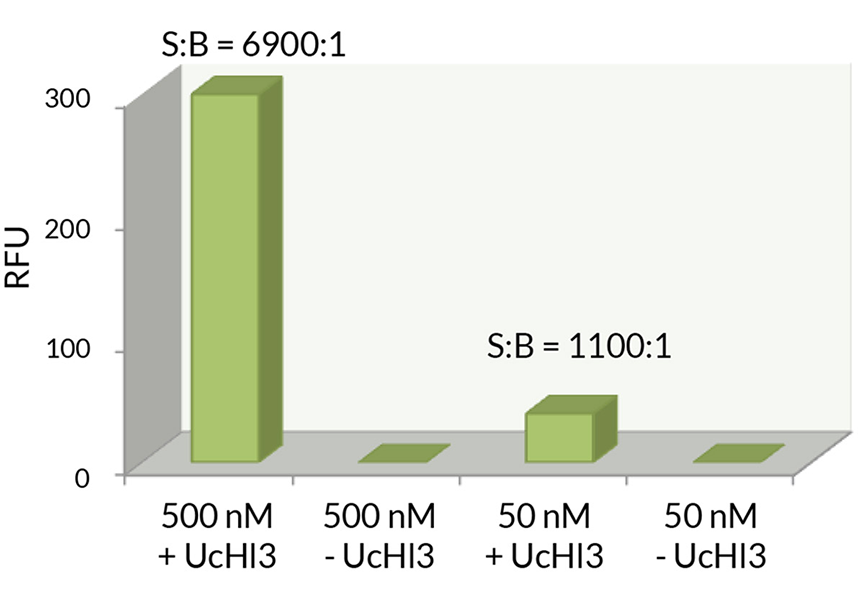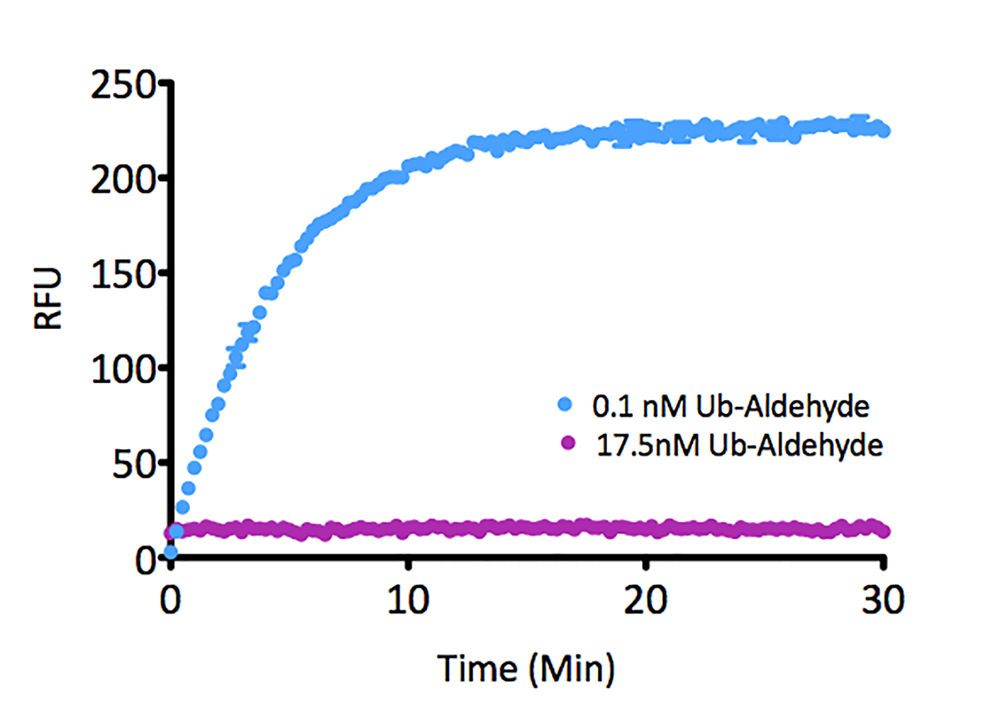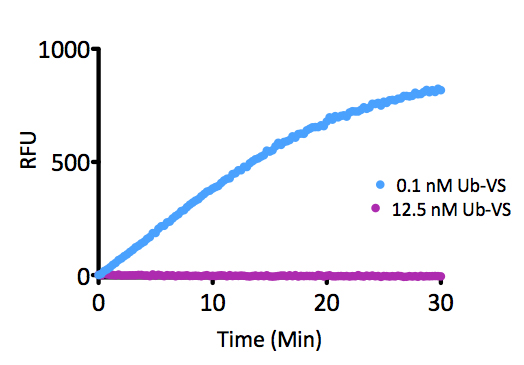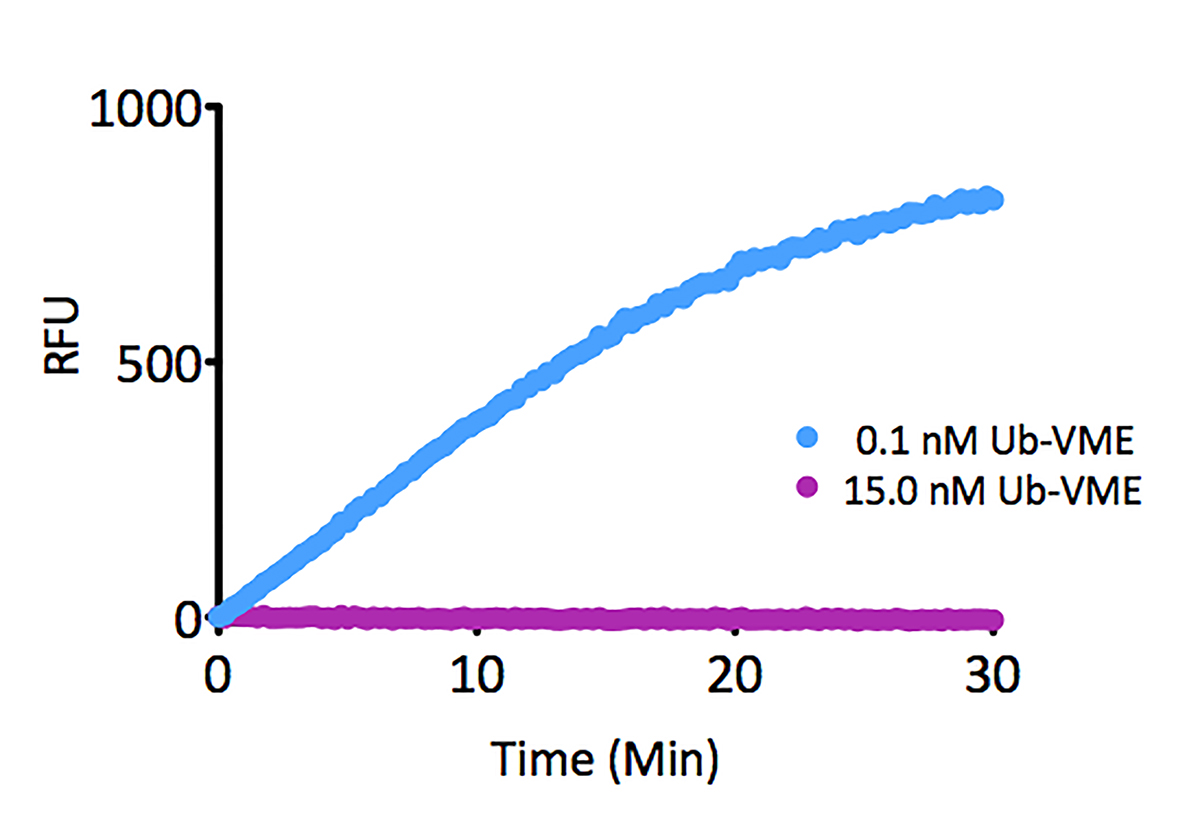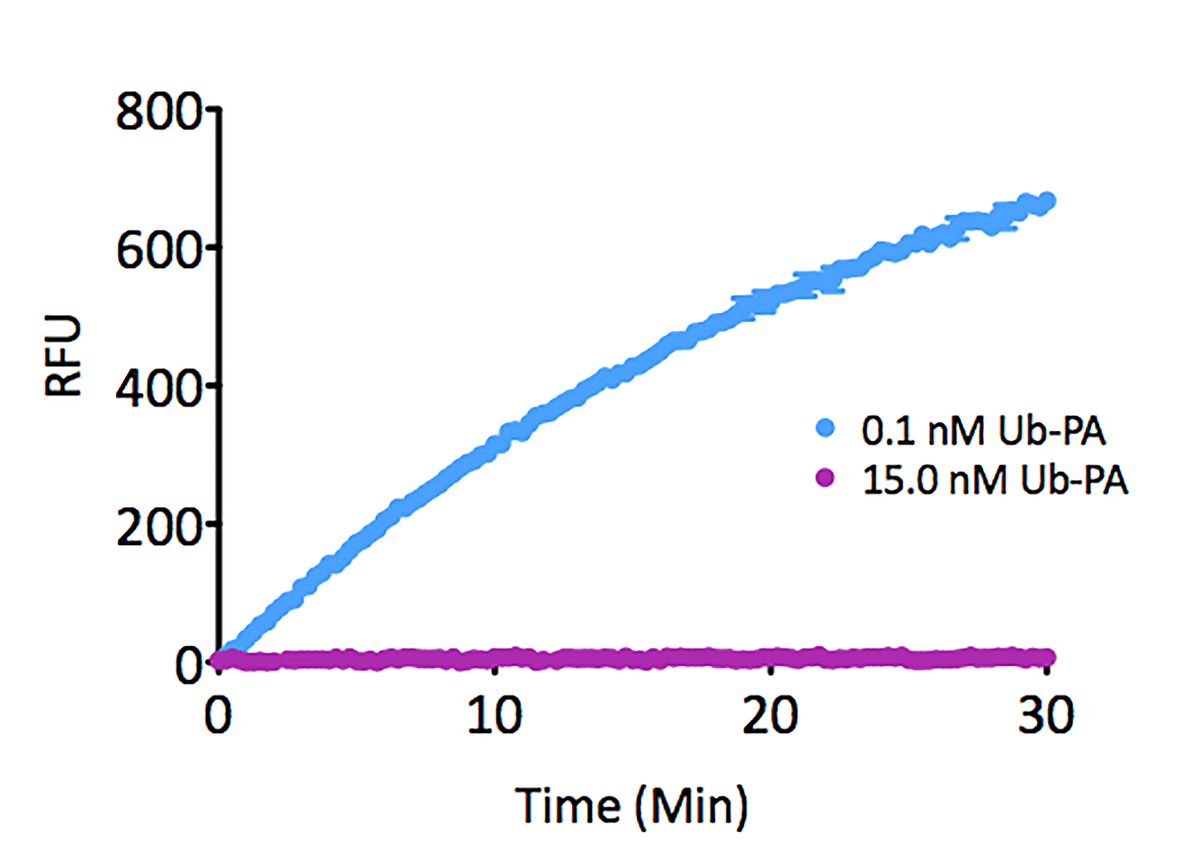
Kinetic Activity: UCHL3 (SBB-DE0023) activity with Ubiquitin-AMC (SBB-PS0043) measured in the presence of 15.0nM and 0.1nM Ubiquitin propargylamide (SBB-PS0034).
Ubiquitin-propargylamide (human) (rec.)
SBB-PS0034
Protein IDP0CG47
Product group Proteins / Signaling Molecules
Overview
- SupplierSouth Bay Bio
- Product NameUbiquitin-propargylamide (human) (rec.)
- Delivery Days Customer2
- CertificationResearch Use Only
- Estimated Purity>97%
- Gene ID7314
- Target nameUBB
- Target descriptionubiquitin B
- Target synonymsHEL-S-50, polyubiquitin-B, epididymis secretory protein Li 50, polyubiquitin B
- Protein IDP0CG47
- Protein NamePolyubiquitin-B
- Scientific DescriptionProtein. Human ubiquitin (aa1-76)with a C-terminal propargylamide group. Source: E. coli. Formulation: Liquid. In 50mM MES pH 6.0, 100mM sodium chloride. Purity: >97% (LCMS). Ubiquitin is a small (8.5kDa) regulatory protein that has been found in almost all tissues of eukaryotic organisms. The addition of ubiquitin to a substrate protein is called ubiquitination or ubiquitylation. Ubiquitination can affect proteins in many ways: it can signal for their degradation via the proteasome, alter their cellular location, affect their activity and promote or prevent protein interactions. Removal of ubiquitin from a substrate protein occurs via deconjugating enzymes, of which there are nearly 100 known enzymes with various linkage specificities. This product consists of a full-length human, mature ubiquitin polypeptide (amino acids 1-76), expressed in E.coli with a C-terminal warhead (Propargylamide). Ubiquitin propargylamide is a potent, irreversible and specific inhibitor of deubiquitinating enzymes (DUBs) based on a C-terminal electrophilic propargylamide group. Ubiquitin propargylamide can be used for activity profiling experiments and determining DUB inhibitor specificity. It targets three of the four major DUB families: UCH (Ubiquitin C-terminal hydrolases), USP (Ubiquitin specific proteases), OTU (Ovarian tumor proteases) and MJD (Machado-Josephin domain proteases) while JAMM metalloproteases are not inhibited. - Ubiquitin is a small (8.5kDa) regulatory protein that has been found in almost all tissues of eukaryotic organisms. The addition of ubiquitin to a substrate protein is called ubiquitination or ubiquitylation. Ubiquitination can affect proteins in many ways: it can signal for their degradation via the proteasome, alter their cellular location, affect their activity and promote or prevent protein interactions. Removal of ubiquitin from a substrate protein occurs via deconjugating enzymes, of which there are nearly 100 known enzymes with various linkage specificities. This product consists of a full-length human, mature ubiquitin polypeptide (amino acids 1-76), expressed in E.coli with a C-terminal warhead (Propargylamide). Ubiquitin propargylamide is a potent, irreversible and specific inhibitor of deubiquitinating enzymes (DUBs) based on a C-terminal electrophilic propargylamide group. Ubiquitin propargylamide can be used for activity profiling experiments and determining DUB inhibitor specificity. It targets four of the five major DUB families: UCH (Ubiquitin C-terminal hydrolases), USP (Ubiquitin specific proteases), OTU (Ovarian tumor proteases) and MJD (Machado-Josephin domain proteases) while JAMM metalloproteases are not inhibited.
- Storage Instruction-80°C
- UNSPSC41116100
- SpeciesHuman


